A printed MIMO antenna system for future smart 5G devices such as smart watches and dongles etc. has been presented. The design presents eight similar antennas etched on ...
Abstract:
This paper presents the design of 8 \times 8 multiple-input multiple-output (MIMO) antennas for future 5G devices, such as smart watches and dongles. Each antenna of ...Show MoreMetadata
Abstract:
This paper presents the design of 8 \times 8 multiple-input multiple-output (MIMO) antennas for future 5G devices, such as smart watches and dongles. Each antenna of the MIMO configuration occupies 3 \times 4 mm2 and is printed on the top layer of the substrate in the form of a rotated H-shaped patch. The substrate used for the design is a 31.2 \times 31.2 \times 1.57 mm3, Rogers RT-5880 board, with a dielectric constant of 2.2. The top layer of the substrate has eight MIMO antennas, whereas the bottom layer is composed of ground plane. The ground plane is an electromagnetic bandgap-based structure designed for the enhancement of gain and efficiency. Each antenna is fed from the bottom layer of the substrate through vias to avoid any spurious radiation. The MIMO antennas resonate at 25.2 GHz with a 6-dB percentage bandwidth of 15.6%. The gain attained by the antennas in the entire bandwidth is above 7.2 dB with a maximum value of 8.732 dB at the resonant frequency. Likewise, the value of efficiency attained by the antennas in the entire bandwidth is above 65% with a maximum value of 92.7% at the resonant frequency. The simulation and measurement results have substantiated a good performance of the MIMO antennas, thus making them suitable for compact 5G devices.
A printed MIMO antenna system for future smart 5G devices such as smart watches and dongles etc. has been presented. The design presents eight similar antennas etched on ...
Published in: IEEE Access ( Volume: 6)
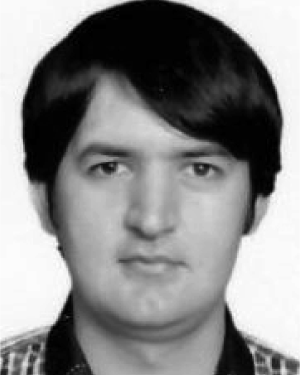
Research Institute for Microwave and Millimeter-Wave Studies, National University of Science and Technology, Islamabad, Pakistan
Nosherwan Shoaib (SM’18) received the master’s degree in electronics engineering and the Ph.D. degree in electronics and electrical measurements engineering from the Politecnico di Torino, Italy, in 2011 and 2015, respectively. He was a Post-Doctoral Research Fellow with the Istituto Nazionale di Ricerca Metrologica, Italy, and the Petroleum Institute University and Research Center, United Arab Emirates. He is currently a...Show More
Nosherwan Shoaib (SM’18) received the master’s degree in electronics engineering and the Ph.D. degree in electronics and electrical measurements engineering from the Politecnico di Torino, Italy, in 2011 and 2015, respectively. He was a Post-Doctoral Research Fellow with the Istituto Nazionale di Ricerca Metrologica, Italy, and the Petroleum Institute University and Research Center, United Arab Emirates. He is currently a...View more
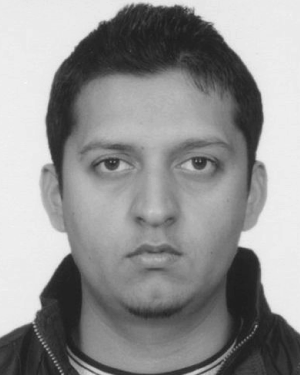
School of Electronic Engineering and Computer Science, Queen Mary University of London, London, U.K.
Sultan Shoaib received the Ph.D. degree from the Queen Mary University of London, U.K., in 2016. He is currently an Assistant Professor with the Department of Electrical Engineering, HITEC University, Taxila, Pakistan. He is also involved in collaborative research at the Queen Mary University of London, the University of Bedfordshire, Luton, U.K., and the National University of Science and Technology, Pakistan. His resear...Show More
Sultan Shoaib received the Ph.D. degree from the Queen Mary University of London, U.K., in 2016. He is currently an Assistant Professor with the Department of Electrical Engineering, HITEC University, Taxila, Pakistan. He is also involved in collaborative research at the Queen Mary University of London, the University of Bedfordshire, Luton, U.K., and the National University of Science and Technology, Pakistan. His resear...View more
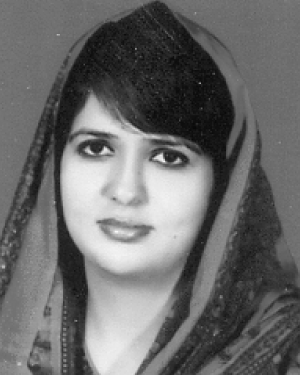
Department of Electrical Engineering, HITEC University, Taxila, Pakistan
Riqza Y. Khattak received the B.Sc. degree in electrical (electronics) engineering from COMSATS, Abbottabad, Pakistan, in 2015. Since 2015, she has been involved in research on antennas and wave propagation. She is currently the M.Sc. degree in electrical engineering with HITEC University, Taxila, Pakistan. Her M.Sc. thesis dissertation is on multiple-input multiple-output antennas for future 5G terminals.
Riqza Y. Khattak received the B.Sc. degree in electrical (electronics) engineering from COMSATS, Abbottabad, Pakistan, in 2015. Since 2015, she has been involved in research on antennas and wave propagation. She is currently the M.Sc. degree in electrical engineering with HITEC University, Taxila, Pakistan. Her M.Sc. thesis dissertation is on multiple-input multiple-output antennas for future 5G terminals.View more
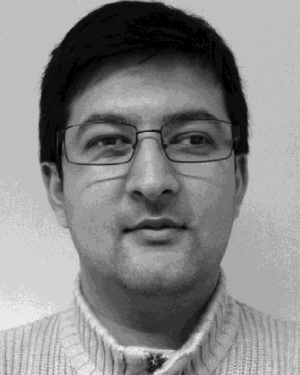
School of Electronic Engineering and Computer Science, Queen Mary University of London, London, U.K.
Imran Shoaib received the B.S. degree in electrical (telecommunication) engineering from COMSATS University, Islamabad, Pakistan, in 2006, and the M.Sc. degree in electronic engineering from the Queen Mary University of London, London, U.K., in 2008, where he is currently pursuing the Ph.D. degree.
His research interests include antenna design for multiple-input multiple-output applications, smart and reconfigurable antenn...Show More
Imran Shoaib received the B.S. degree in electrical (telecommunication) engineering from COMSATS University, Islamabad, Pakistan, in 2006, and the M.Sc. degree in electronic engineering from the Queen Mary University of London, London, U.K., in 2008, where he is currently pursuing the Ph.D. degree.
His research interests include antenna design for multiple-input multiple-output applications, smart and reconfigurable antenn...View more
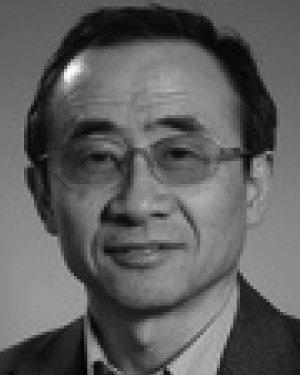
School of Electronic Engineering and Computer Science, Queen Mary University of London, London, U.K.
Xiaodong Chen is currently a Professor of microwave engineering with the School of Electronic Engineering and Computer Science, Queen Mary University of London, London, U.K. He is also the Director of the Joint Research Laboratory on Electromagnetic Theory and Applications, Queen Mary University of London and Beijing University of Posts and Telecommunications. He has co-authored two textbooks, over 100 journal papers, and...Show More
Xiaodong Chen is currently a Professor of microwave engineering with the School of Electronic Engineering and Computer Science, Queen Mary University of London, London, U.K. He is also the Director of the Joint Research Laboratory on Electromagnetic Theory and Applications, Queen Mary University of London and Beijing University of Posts and Telecommunications. He has co-authored two textbooks, over 100 journal papers, and...View more
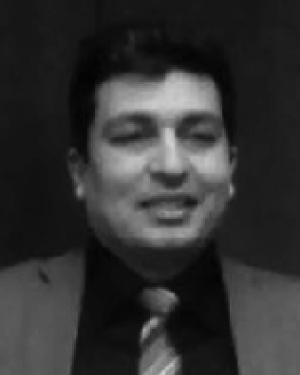
College of Electrical and Mechanical Engineering, National University of Science and Technology, Islamabad, Pakistan
Aqib Perwaiz received the Ph.D. degree from the National University of Sciences and Technology, Islamabad, Pakistan. He is currently the Assistant Director of research and development with the College of Electrical and Mechanical Engineering, National University of Sciences and Technology. He has hands on industrial working experience of 23 years and has designed many repair setups for world top ranking companies in Pakis...Show More
Aqib Perwaiz received the Ph.D. degree from the National University of Sciences and Technology, Islamabad, Pakistan. He is currently the Assistant Director of research and development with the College of Electrical and Mechanical Engineering, National University of Sciences and Technology. He has hands on industrial working experience of 23 years and has designed many repair setups for world top ranking companies in Pakis...View more

Research Institute for Microwave and Millimeter-Wave Studies, National University of Science and Technology, Islamabad, Pakistan
Nosherwan Shoaib (SM’18) received the master’s degree in electronics engineering and the Ph.D. degree in electronics and electrical measurements engineering from the Politecnico di Torino, Italy, in 2011 and 2015, respectively. He was a Post-Doctoral Research Fellow with the Istituto Nazionale di Ricerca Metrologica, Italy, and the Petroleum Institute University and Research Center, United Arab Emirates. He is currently an Assistant Professor with the Research Institute for Microwave and Millimeter-Wave Studies, National University of Sciences and Technology, Islamabad. He teaches RF and microwave related courses to electrical engineering students. He contributed to a patent, two books, and more than 45 leading international technical journals, peer-reviewed conference papers, and technical reports. His current research interests include RF energy harvesting, Internet of Things, RF metrology and design and development of 5G multiple-input multiple-output antennas, and microwave active circuits.
Dr. Shoaib is the Founder and the Chair of Pakistan’s first ever IEEE joint Microwave Theory and Techniques, Antenna and Propagation and Electromagnetic Compatibility/Interference Chapter. He was elected as an Early Career Representative of the International Union of Radio Science (URSI) Commission-A in 2017. He was a recipient of the Best Ph.D. Graduate Award in 2015, the 4th International URSI Student Paper Competition in 2015, the ARFTG Ph.D. Student Sponsorship Award in 2013, the Best National Senior Year Graduate Project Gold Medal Award in 2010, and the President of Pakistan Gold Medal Award in 2008. He received the Young Scientist Awards from URSI at multiple occasions.
Nosherwan Shoaib (SM’18) received the master’s degree in electronics engineering and the Ph.D. degree in electronics and electrical measurements engineering from the Politecnico di Torino, Italy, in 2011 and 2015, respectively. He was a Post-Doctoral Research Fellow with the Istituto Nazionale di Ricerca Metrologica, Italy, and the Petroleum Institute University and Research Center, United Arab Emirates. He is currently an Assistant Professor with the Research Institute for Microwave and Millimeter-Wave Studies, National University of Sciences and Technology, Islamabad. He teaches RF and microwave related courses to electrical engineering students. He contributed to a patent, two books, and more than 45 leading international technical journals, peer-reviewed conference papers, and technical reports. His current research interests include RF energy harvesting, Internet of Things, RF metrology and design and development of 5G multiple-input multiple-output antennas, and microwave active circuits.
Dr. Shoaib is the Founder and the Chair of Pakistan’s first ever IEEE joint Microwave Theory and Techniques, Antenna and Propagation and Electromagnetic Compatibility/Interference Chapter. He was elected as an Early Career Representative of the International Union of Radio Science (URSI) Commission-A in 2017. He was a recipient of the Best Ph.D. Graduate Award in 2015, the 4th International URSI Student Paper Competition in 2015, the ARFTG Ph.D. Student Sponsorship Award in 2013, the Best National Senior Year Graduate Project Gold Medal Award in 2010, and the President of Pakistan Gold Medal Award in 2008. He received the Young Scientist Awards from URSI at multiple occasions.View more

School of Electronic Engineering and Computer Science, Queen Mary University of London, London, U.K.
Sultan Shoaib received the Ph.D. degree from the Queen Mary University of London, U.K., in 2016. He is currently an Assistant Professor with the Department of Electrical Engineering, HITEC University, Taxila, Pakistan. He is also involved in collaborative research at the Queen Mary University of London, the University of Bedfordshire, Luton, U.K., and the National University of Science and Technology, Pakistan. His research interests include designing and testing multiple-input multiple-output and array antennas for satellite, mobile handsets, and future 5G terminals.
Sultan Shoaib received the Ph.D. degree from the Queen Mary University of London, U.K., in 2016. He is currently an Assistant Professor with the Department of Electrical Engineering, HITEC University, Taxila, Pakistan. He is also involved in collaborative research at the Queen Mary University of London, the University of Bedfordshire, Luton, U.K., and the National University of Science and Technology, Pakistan. His research interests include designing and testing multiple-input multiple-output and array antennas for satellite, mobile handsets, and future 5G terminals.View more

Department of Electrical Engineering, HITEC University, Taxila, Pakistan
Riqza Y. Khattak received the B.Sc. degree in electrical (electronics) engineering from COMSATS, Abbottabad, Pakistan, in 2015. Since 2015, she has been involved in research on antennas and wave propagation. She is currently the M.Sc. degree in electrical engineering with HITEC University, Taxila, Pakistan. Her M.Sc. thesis dissertation is on multiple-input multiple-output antennas for future 5G terminals.
Riqza Y. Khattak received the B.Sc. degree in electrical (electronics) engineering from COMSATS, Abbottabad, Pakistan, in 2015. Since 2015, she has been involved in research on antennas and wave propagation. She is currently the M.Sc. degree in electrical engineering with HITEC University, Taxila, Pakistan. Her M.Sc. thesis dissertation is on multiple-input multiple-output antennas for future 5G terminals.View more

School of Electronic Engineering and Computer Science, Queen Mary University of London, London, U.K.
Imran Shoaib received the B.S. degree in electrical (telecommunication) engineering from COMSATS University, Islamabad, Pakistan, in 2006, and the M.Sc. degree in electronic engineering from the Queen Mary University of London, London, U.K., in 2008, where he is currently pursuing the Ph.D. degree.
His research interests include antenna design for multiple-input multiple-output applications, smart and reconfigurable antenna systems, radio propagation modeling, RF circuit and system design, and aspects of microwave printed circuit design.
Imran Shoaib received the B.S. degree in electrical (telecommunication) engineering from COMSATS University, Islamabad, Pakistan, in 2006, and the M.Sc. degree in electronic engineering from the Queen Mary University of London, London, U.K., in 2008, where he is currently pursuing the Ph.D. degree.
His research interests include antenna design for multiple-input multiple-output applications, smart and reconfigurable antenna systems, radio propagation modeling, RF circuit and system design, and aspects of microwave printed circuit design.View more

School of Electronic Engineering and Computer Science, Queen Mary University of London, London, U.K.
Xiaodong Chen is currently a Professor of microwave engineering with the School of Electronic Engineering and Computer Science, Queen Mary University of London, London, U.K. He is also the Director of the Joint Research Laboratory on Electromagnetic Theory and Applications, Queen Mary University of London and Beijing University of Posts and Telecommunications. He has co-authored two textbooks, over 100 journal papers, and 300 refereed conference papers. His research interests include microwave and THz antennas and devices, wireless communications, and bio-electromagnetics.
Xiaodong Chen is currently a Professor of microwave engineering with the School of Electronic Engineering and Computer Science, Queen Mary University of London, London, U.K. He is also the Director of the Joint Research Laboratory on Electromagnetic Theory and Applications, Queen Mary University of London and Beijing University of Posts and Telecommunications. He has co-authored two textbooks, over 100 journal papers, and 300 refereed conference papers. His research interests include microwave and THz antennas and devices, wireless communications, and bio-electromagnetics.View more

College of Electrical and Mechanical Engineering, National University of Science and Technology, Islamabad, Pakistan
Aqib Perwaiz received the Ph.D. degree from the National University of Sciences and Technology, Islamabad, Pakistan. He is currently the Assistant Director of research and development with the College of Electrical and Mechanical Engineering, National University of Sciences and Technology. He has hands on industrial working experience of 23 years and has designed many repair setups for world top ranking companies in Pakistan. He is currently involved in the development of Li polymer power pack systems. His research interests include optimization of software-defined radio modules, reverse engineering, design thinking, and data mining.
Aqib Perwaiz received the Ph.D. degree from the National University of Sciences and Technology, Islamabad, Pakistan. He is currently the Assistant Director of research and development with the College of Electrical and Mechanical Engineering, National University of Sciences and Technology. He has hands on industrial working experience of 23 years and has designed many repair setups for world top ranking companies in Pakistan. He is currently involved in the development of Li polymer power pack systems. His research interests include optimization of software-defined radio modules, reverse engineering, design thinking, and data mining.View more

